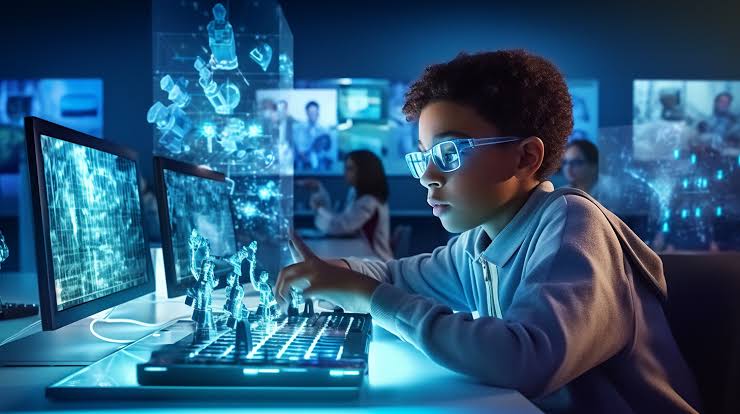“Will humans provide oversight.?”
Abstract
Artificial Intelligence (AI) is reshaping the world around us, including the ways of learning about it. Traditionally, education has followed a one-size-fits-all approach, where students are taught the same curriculum at the same pace. However, this model often fails to cater to students’ needs and learning styles.
With the increase in studies about Artificial Intelligence (AI) in the educational field, many scholars believe that the role of teachers, school and leaders in education will change. This can lead to improved student outcomes, increased efficiency for teachers, and more engaging learning environments.
Methodology
Research shows that schools and teachers will have new products, benefits and also face drawbacks with the arrival of AI in education.
While participants generally seem to have a positive perception towards AI, there are also certain drawbacks, especially highlighted by teachers and academicians, regarding the future of teaching.
The role of real-life educators in fostering critical thinking, emotional intelligence and social skills remains essential in education. While AI can enhance the teaching process, the unique qualities that teachers bring to the classroom make them irreplaceable.
Conclusion
AI can be a Threat in teaching
● Absence of Human touch or emotional connection
● Concern about privacy
● Implementation cost
● Dependency on technology
● More screen time
● Affects on decision making capacity
● Lack of Motivation
As we enter 2025, I’ll continue exploring how to balance the benefits of generative AI with the foundational experiences and skills that children need to develop independently. Education must prepare young people not just to use AI, but to thrive in a world shaped by it.
We must make sure that the upcoming generations learn relevant skills that will set them and our planet up for success.




